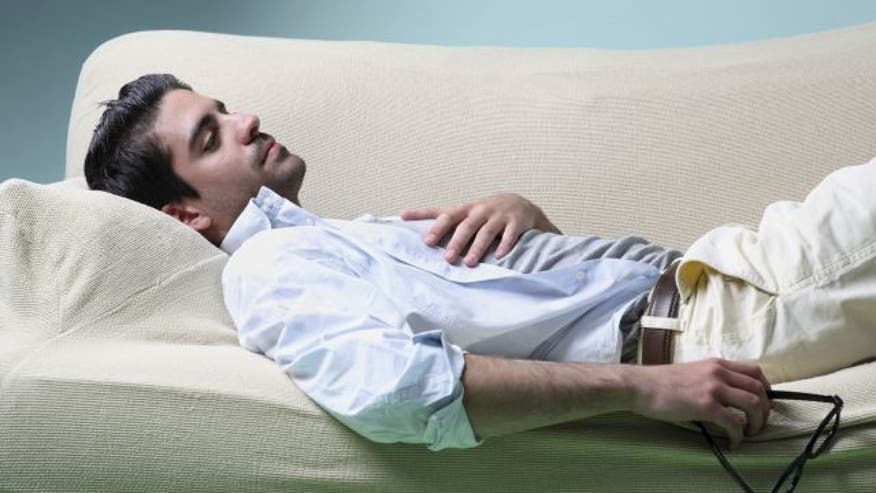Sleep deprived? Naps might help your immune system.
Published March 06, 2015

Getting too little sleep is linked to poor health, but short naps might partly offset that effect, a small study suggests.
Sleep deprivation can have a negative impact on brain function, metabolism, hormones and the immune system. While research has shown that a 30-minute afternoon nap can restore alertness, the current study is the first to examine whether napping has any impact on stress or immune system function, said Brice Faraut, a sleep researcher at Université Paris Descartes-Sorbonne Paris Cité in France.
Faraut and colleagues studied 11 healthy young men who typically slept seven to nine hours each night, didn’t smoke and didn’t normally take naps.
Two separate times, each man participated in a three-day session of sleep tests in a laboratory where food intake and lighting were strictly controlled and no alcohol, caffeine or medications were allowed.
During one session, they slept normally for one night but then were only allowed to sleep for two hours the next night. The men could sleep as much as they liked on the third night.
The study team collected urine and saliva samples each day to measure levels of norepinephrine, a substance that’s typically released when the body is under stress. It increases heart rate, constricts blood vessels and raises blood pressure and blood sugar.
The men’s norepinephrine levels were more than doubled in the afternoon after the night of sleep restriction, compared to the day after they had slept normally. But there was no change in norepinephrine when participants were allowed to nap.
Lack of sleep also affected an immune-regulating molecule called interleukin-6, which dropped when the men were sleep-deprived but stayed normal when they were allowed to nap.
This relatively short nap duration can be a “powerful countermeasure to sleep debt,” Faraut said in an email, adding that the findings need to be tested in real-life situations.
Michael Grandner, a sleep researcher at the University of Pennsylvania who was not involved in the study, said the immune findings were somewhat contradictory to the existing literature.
“But these are complicated processes, and studies like these, that examine what happens during partial recovery, (help) us understand all of the ways that sleep is important for health and functioning,” Grandner told Reuters Health by email.
Grandner differentiates between two types of napping.
“First are naps that you take because you are so exhausted that you cannot stay awake,” Grandner said. “A nap in this case may help a little, but being that exhausted is a sign of insufficient sleep or a sleep disorder and it’s unlikely that the nap can completely fix the problem.”
“You might have a sleep disorder like sleep apnea (which is a very common cause of sleepiness) or you may be sleep deprived,” he said, “which has been shown to be an important risk factor for weight gain and obesity, heart disease, poor performance, and many other outcomes.”
Grandner said the second type of nap is one you take to refresh yourself.
“Rather than a nap by necessity, this is a nap by choice,” he said. “These naps, since they are not in the context of exhaustion, have the opportunity of boosting your performance (rather than simply making up for lost sleep).”




